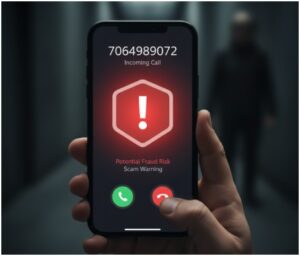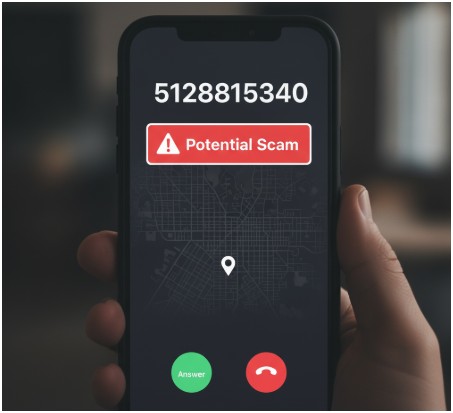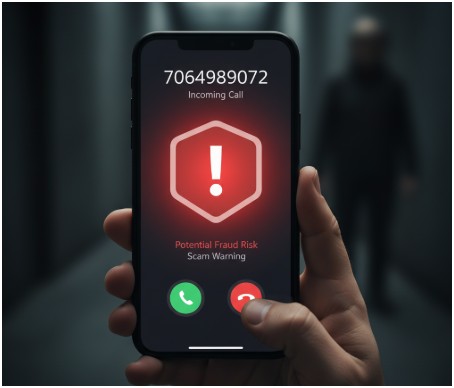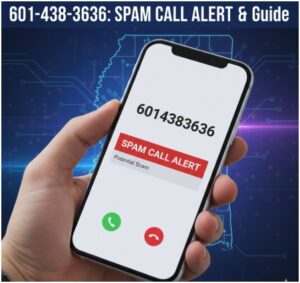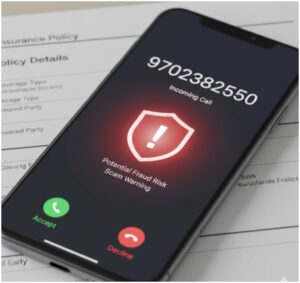I still remember the first time 5128815340 flashed across my phone screen. It looked like a local number from Austin, Texas — and that’s what made me hesitate.
I live nowhere near Austin, and I wasn’t expecting any calls from that area. Instinct told me not to pick up, so I let it ring.
That small decision sent me down a rabbit hole of research, and I quickly discovered that many others had run into the same suspicious number.
Since then, I’ve learned a lot about why numbers like this pop up, how scammers try to manipulate people, and what steps you can take to stay safe. If you’ve also received a call from 5128815340, here’s everything you should know.
Why 5128815340 Is Raising Red Flags
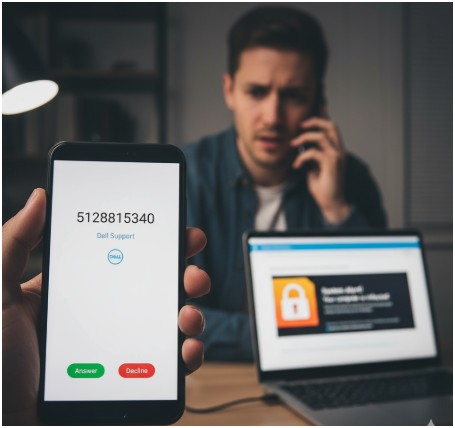
As soon as I started digging, I noticed one thing: 5128815340 has appeared on numerous scam-reporting sites. People describe it as a spam number, often connected to fake businesses, government impersonators, or aggressive robocalls.
The 512 area code itself is real — it’s assigned to Austin, Texas. But that doesn’t mean the call is local. Scammers frequently use a trick called caller ID spoofing, which disguises the real origin of the call and replaces it with a number that looks familiar. They do this to increase the chances you’ll answer.
It’s clever, but it’s also dangerous. That’s because once you pick up, you might hear convincing stories that sound legitimate. And those stories often aim to get one thing: your money or your personal information.
Common Scams Linked to 5128815340
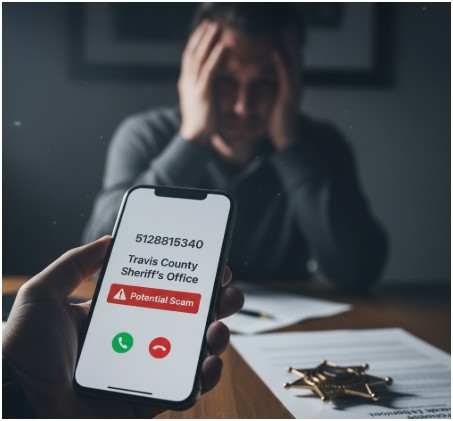
Over time, I’ve seen reports of several recurring scams tied to 5128815340 and other numbers with the 512 prefix. Here are the most common ones you should watch out for:
1. Fake Tech Support Calls
One of the most convincing scams I read about involved a supposed Dell representative. The caller claimed to be handling the recipient’s small business website and offered a “special deal” on services that Dell doesn’t even provide.
What made this scam so effective was the amount of personal information the scammer already had — they knew the victim’s name, email, and even details about past purchases. That data likely came from a leaked database, but it was enough to make the call sound legitimate.
Once the victim trusted them, the scammer tried to get payment information and remote access to the victim’s computer.
2. Spoofed Law Enforcement Calls
Another common tactic is pretending to be from the Travis County Sheriff’s Office. In one case, the caller claimed the recipient had missed a court appearance related to a fraudulent PPP loan and needed to “verify their identity.” They even knew the victim’s birth date and home address.
It’s a terrifying scenario designed to scare you into acting quickly. But when the person called the real sheriff’s office, they learned the entire story was fabricated.
3. Generic Spam and Robocalls
Beyond these elaborate scams, many people report getting repetitive robocalls from 512 numbers. These calls often start with a recorded message about “expiring warranties,” “urgent billing issues,” or “limited-time offers.” Even if they sound harmless, they’re often part of larger phishing schemes.
How I Handle Calls From 5128815340 (And How You Should Too)
Dealing with numbers like 5128815340 is now part of my everyday digital hygiene. I’ve built a set of simple rules that help me avoid falling for scams — and they can work for you, too:
- Don’t answer unknown numbers. Most legitimate callers leave a voicemail or follow up with an email. Scammers, on the other hand, often hang up if they hit voicemail.
- Never call back. Calling back can confirm that your number is active, which can lead to even more scam attempts. Some callbacks even connect to premium-rate lines designed to drain your balance.
- Block the number immediately. This prevents future calls from the same line and reduces repeat attempts.
- Use a spam-blocking app. Apps like Truecaller and RoboKiller have massive scam databases that identify and block suspicious calls before you even pick up.
- Verify independently. If someone claims to be from a business or agency, hang up and call them back using a number from their official website — never the one they give you.https://www.youtube.com/watch?v=73P7DtasoY8&pp=0gcJCdgAo7VqN5tD
Why Scammers Are Getting Harder to Spot
One thing I’ve learned is that scammers are getting more sophisticated. They’re no longer relying on generic robocalls or poor-quality scripts.
Many now have detailed personal information from past data breaches — names, addresses, emails, even purchase histories. That makes their stories sound more believable.
Some even mirror real communication styles from companies or government agencies. They use official-sounding language, mimic voicemail prompts, and spoof real-looking email addresses or websites. All of this is designed to build trust fast and bypass your natural skepticism.
The key takeaway? Always remember that legitimate organizations will never demand sensitive information, payment, or immediate action over an unsolicited call. If they pressure you to act quickly, it’s almost always a scam.
How to Report 5128815340 and Help Others
If you’ve received a call from 5128815340, reporting it can help authorities track scam patterns and protect other people. In the United States, here’s how you can do that:
- Submit a report to the Federal Trade Commission (FTC) at reportfraud.ftc.gov
- File a complaint with the Federal Communications Commission (FCC)
- Mark the number as spam in apps like Truecaller or RoboKiller — this updates their databases and warns other users
It takes only a few minutes, but those reports play a big role in helping regulators shut down scam operations.
FAQs About 5128815340
1. Is 5128815340 a scam number?
Yes. Based on numerous user reports, 5128815340 is considered a likely scam number. Calls from this line often involve impersonations of tech support agents, law enforcement officials, or automated robocalls trying to collect information.
2. Why do scammers use local numbers like this?
Scammers use caller ID spoofing to make their calls appear local, increasing the chances that you’ll pick up. Even if the area code is real — like 512 in Austin — the call could be coming from anywhere in the world.
3. What happens if I answer the call?
If you answer, scammers might try to trick you into sharing personal information, installing malware, or sending money. They could also use the opportunity to confirm that your number is active, leading to more scam calls.
4. How can I reduce scam calls like this?
Use a spam-blocking app, avoid answering unknown numbers, and report suspicious calls to the FTC and FCC. Over time, these actions can significantly reduce the volume of scam calls you receive.
Stay Alert and Protect Yourself
Getting a call from 5128815340 was a wake-up call for me — literally and figuratively. It reminded me how easy it is for scammers to appear legitimate and how important it is to stay cautious.
By following a few smart steps — not answering unknown calls, verifying claims independently, and reporting suspicious activity — you can protect yourself and your personal data.
Scammers are getting more sophisticated, but that doesn’t mean they have to win. Knowledge is your best defense.
The next time 5128815340 or any other suspicious number calls, you’ll know exactly what to do: stay calm, stay skeptical, and stay safe.




